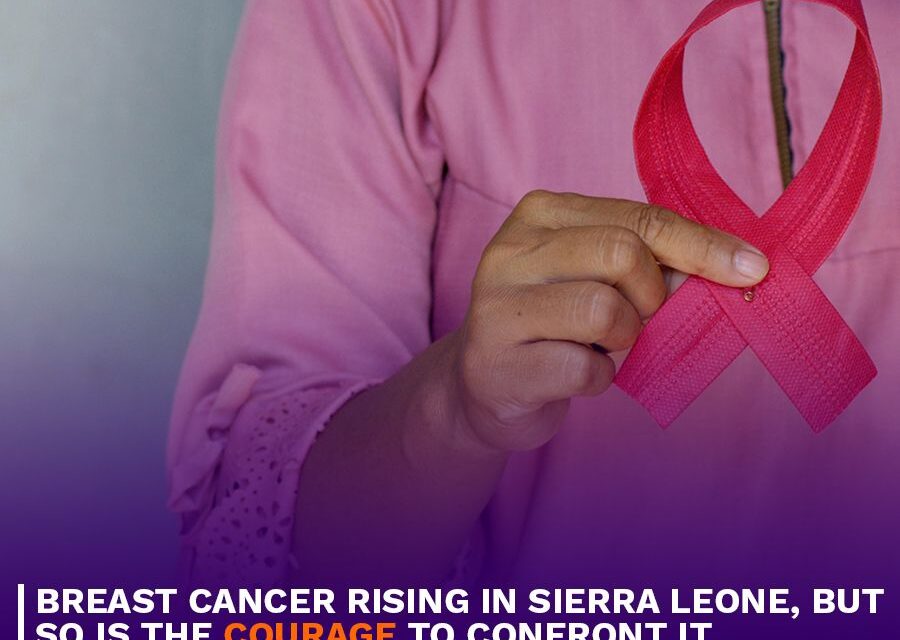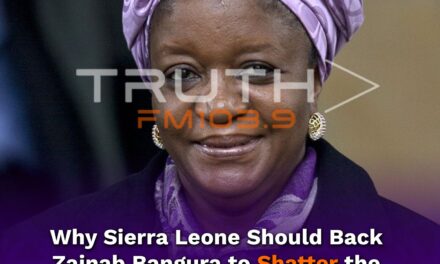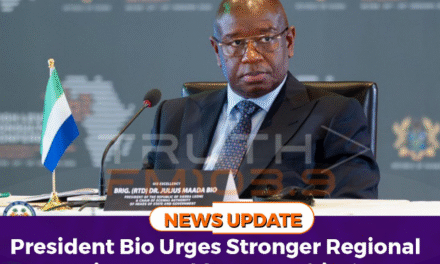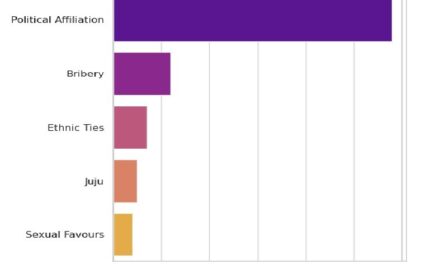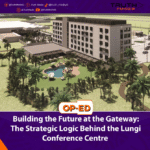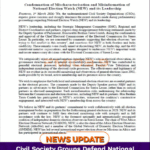By Nafisatu Olayinka Deen
Freetown, October 6, 2025 — When Haja Kuyateh lost her mother to breast cancer, the pain was more than physical, it was transformative. What began as a small lump turned into surgery, relentless treatments, and ultimately, loss. Today, Haja is one of many women turning grief into action, joining the fight to raise awareness and save lives.
“Breast cancer doesn’t respect age or circumstance,” she says. “It strips women of their health, their confidence, and their identity. I saw it firsthand. That’s why I speak out, so no one else has to go through what my mother did.”
Her story echoes a growing concern across Sierra Leone, where breast cancer is quietly becoming one of the most pressing public health challenges. A 2025 study published in BMC Cancer by researcher Augustus Osborne reveals a sharp rise in prevalence, from 102.7 to 157.9 cases per 100,000 women between 2000 and 2019. The burden falls overwhelmingly on women, many of whom cannot afford diagnosis or treatment. But amid the statistics, a movement is gaining ground.
At the forefront is the Thinking Pink Breast Cancer Foundation, a national NGO led by Cremelda Parkinson Pratt, dedicated to early detection, education, and survivor support. “October is Breast Cancer Awareness Month, and we’re going to be loud about it,” Pratt told Truth Media. “Too many women suffer in silence. Awareness is the first step toward survival.”
This month, the foundation is offering breast cancer screenings for just one hundred leones, and distributing free prosthetic bras to women who’ve undergone surgery, small but powerful gestures of care and dignity.
Medical professionals are also sounding the alarm. Dr. Banya, a leading oncologist, urges women to take breast health seriously. “Self-examination is key,” he says. “Check your breasts regularly, during a bath, while dressing and seek medical attention if you notice any lumps or changes.”
Yet the fight is far from over. Sierra Leone still lacks a fully equipped national cancer centre, and diagnostic tools remain scarce. “We have trained professionals,” Dr. Banya explains, “but without the infrastructure, advanced imaging, treatment facilities, we’re fighting with one hand tied.”
He believes the future of cancer care is promising, but only if the government steps up. “The political will must match the urgency. We need a national cancer centre, equipped and accessible, to turn hope into reality.”
For advocates like Haja Kuyateh, the mission is personal. “Thinking Pink helped my mother when she needed it most. Now I help others in her memory. Breast cancer is cruel but together, we can fight back.”
As Sierra Leone observes Breast Cancer Awareness Month, the message is clear: the disease may be rising, but so is the will to defeat it with compassion, courage, and collective action.
